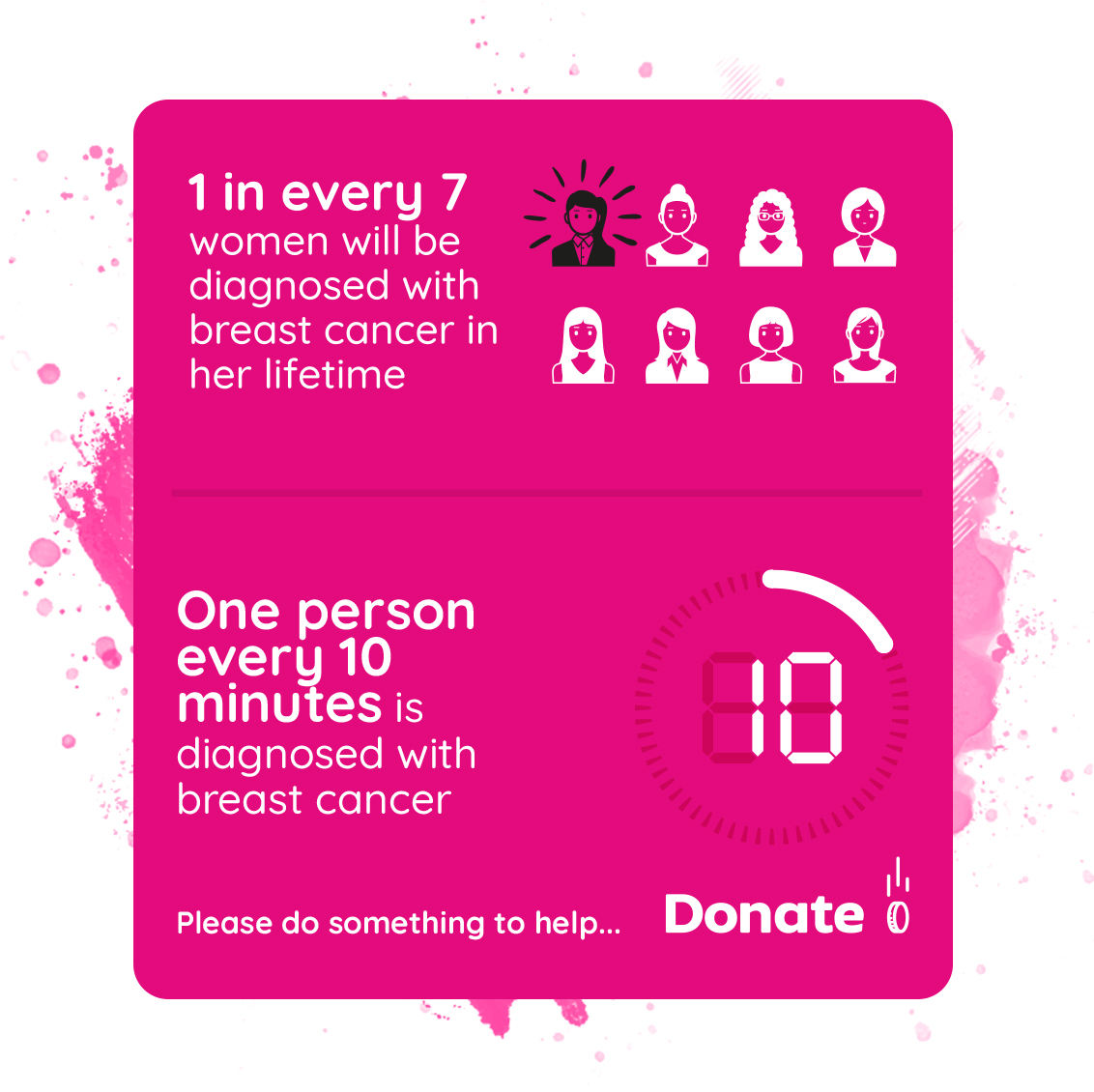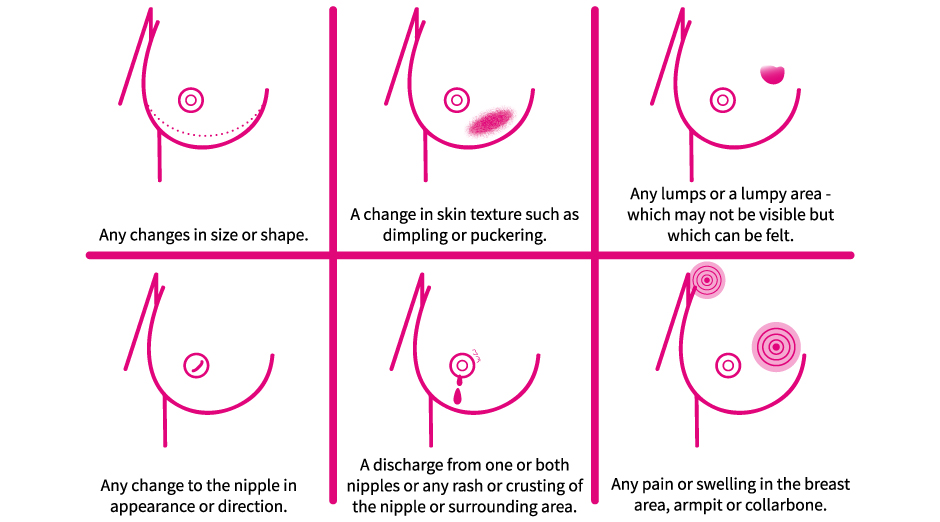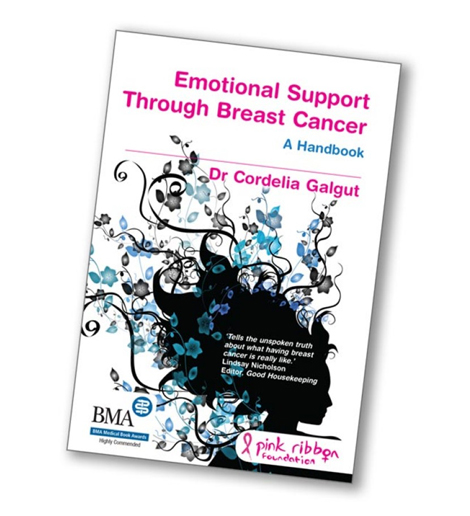
"By and large, breast cancer is a curable disease. It can be cured and the treatments you can have today are very effective – a lot of patients associate cancer with terminal disease or a death sentence but breast cancer in particular is something that we’ve had such a lot of success with and the results are now so much better, that we can be optimistic and at the same time be very truthful."
Dr Tim Davidson - Consultant Breast Surgeon, Royal Free Hospital

How should I check my breasts?
Breasts come in different shapes and sizes and your breasts can change with age and vary at different times of the month. Knowing your breasts and what is normal for you is important as it will make it easier to spot any unusual changes. Knowing about breast cancer signs and symptoms can help you to understand what changes to look for and if you do spot anything unusual, you should get checked out by your doctor.
Check all parts of your breasts and armpits up to your collarbone.

A must for all breast cancer patients and sufferers, their families and friends, this compassionate guide presents an array of new perspectives on the emotional effects of breast cancer and includes many personal testimonies from women who have been diagnosed with this disease.
Written by a breast cancer survivor and practising psychologist, it shares practical ideas to help support sufferers at all stages, be it at diagnosis, during treatment or during life after the initial treatments are over.
The concise, easy-to-read format includes exercises to develop an acceptance of thoughts and feelings, whilst the individual accounts validate the multitude of emotions felt by sufferers.
Emotional Support Through Breast Cancer - Dr Cordelia Galgut
Extracts from the book: “Treatments are made harder for us if we are not told what they can really be like. The harshness of them can then come as a total shock, whereas those of us who have been prepared well can sometimes find a treatment easier than we feared.”
“Most women find the different treatments hard to cope with. Some of us find one treatment more difficult to cope with than another, and some of us struggle more emotionally than physically, or vice versa. Sometimes we feel under pressure to say that we are fine and/or the treatments are fine both during and after the initial treatments have ended.”
“There is no right way to ‘do’ breast cancer. Furthermore, by giving ourselves a hard time for feeling what we are feeling, we might well be making things harder for ourselves.”
“There is some evidence that if we repeat affirming thoughts and feelings to ourselves over and over again, we can change our thought processes from unhelpful ones to ones that are more supportive of us. Perhaps the best way to cope with these ongoing fears is to recognise that they are normal and that our task is to learn to live alongside them, as best we can, and remind ourselves that some days will be easier than others.”
“Within many societies, women’s breasts are associated not only with sex and eroticism, but also with fertility, childbirth and breastfeeding. Most of us don’t consciously walk around thinking about our breasts in this way and can be very shocked by how much this diagnosis strikes at the heart of who we are as women.”
“It can help us to start to think of breast cancer as a chronic condition, both physically and emotionally. Not all of us will want to view breast cancer like this, but for those of us who do, it can help is to recognise and try to accept that the problems we are left with will be chronic ones. This takes the pressure off is to ‘get over them and move on!’ Strangely, it can then be easier to live with this diagnosis and its effects as the years go by.”
“No matter what your diagnosis, the good news is that these days most of us live for years after breast cancer, no matter whether we have primary or secondary breast cancer. However, it will very likely be hard, if not possible, for you to hang on to this fact just now. Nevertheless, keep reminding yourself that this is so, as often as you can, and it might help to get through the dark hours. Most of us think we are going to die, in the immediate aftermath of a diagnosis and for a good while afterwards, no matter how encouraging our doctors and nurses are. This is a perfectly normal psychological reaction to this news, and to be expected. Perhaps you’re trying to keep control of yourself as much as possible at the moment, because you know you’ve got your first treatment/s coming up soon. Maybe you’re keeping it together for your children, your partner, your friends or to hold down your job.”
“It is important to remember that at this time of that there is no right way to deal with breast cancer, now or later on. It might be a good idea just to go with what feels right for you, at this time, whilst you are digesting what is happening to you.”